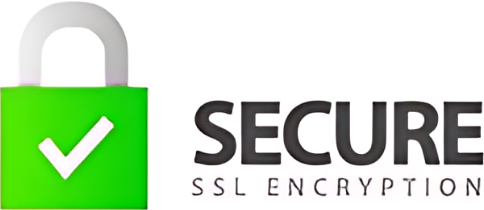10 Common Payroll Challenges in Pakistan and Their Solutions
Payroll management in Pakistan is far more complex than it may initially appear. On the surface, it may seem like simply calculating salaries and issuing payments, but in reality, it involves navigating a web of regulations, compliance requirements, and employee expectations. Companies must stay up-to-date with frequent changes in FBR tax laws, including income tax slabs, Section 149 rules, and withholding taxes. Failure to comply with these regulations can result in penalties, fines, or legal complications during tax audits.
Beyond legal compliance, payroll accuracy is also affected by attendance and leave management. Many organizations still rely on manual attendance sheets or unintegrated systems, which can lead to mistakes in overtime, deductions, and leave calculations. Mismanagement in these areas not only causes financial errors but can also erode employee trust and satisfaction.
10 biggest payroll challenges in Pakistan
1. Frequent Changes in FBR Tax Laws
Pakistan’s tax rules income tax slabs, withholding procedures, and provisions like Section 149 are updated frequently, and keeping spreadsheets or manual rules current is error-prone. When tax law changes aren’t applied immediately, payroll runs will calculate wrong deductions, expose the company to penalties, and create headaches during reconciliation. An automated payroll system that receives regular updates from FBR (or that has a maintained tax-rules engine) ensures new slabs and withholding rates are applied instantly across all employee calculations. This removes manual patchwork, reduces audit risk, and gives management confidence that every payroll run reflects the latest legal requirements.
2. Manual Salary Calculations
Spreadsheets are convenient until a single misplaced formula or copy-paste error creates cascading miscalculations for allowances, overtime, or tax deductions. Manual calculations consume time and increase the risk of under- or over-payments, employee disputes, and rework. Automation eliminates human arithmetic errors: payroll software centralizes formulas, applies them uniformly, and validates inputs. Built-in calculation logic for gross-to-net computations, statutory deductions and benefit adjustments produces consistent, auditable results and frees HR/accounting to focus on exceptions rather than routine math.
3. Inaccurate Attendance and Leave Records
Relying on paper timesheets or spreadsheet entries often leads to late updates, forgotten overtime, or inaccurate leave balances and these mistakes directly affect pay. Integrating payroll with biometric devices or cloud attendance systems provides timestamped, tamper-resistant records that update payroll in real time. That integration ensures overtime, shift differentials, and leave deductions are calculated from trusted data, reduces disputes, speeds approvals, and creates a single source of truth for labor costs and compliance.
4. Difficulty in Handling Multiple Salary Structures
Organizations with varied roles, locations, or contract types need flexible salary structures fixed wages, multiple allowances, reimbursements, tax-exempt components, and bespoke deductions. Manually juggling these variations is slow and error-prone. Modern payroll platforms let you define customizable templates and rule sets per department, grade, or individual, so the system applies the correct mix of pay components automatically. This preserves pay-design complexity while ensuring consistency, simplifies onboarding of new employees, and makes payroll scalable as the company grows.
5. Compliance with Section 149 & Withholding Tax Rules
Withholding obligations such as Section 149 require precise application of rates, thresholds, and documentation; mistakes can trigger tax notices or penalties. Doing this manually requires constant legal monitoring and careful calculation for each payee. A compliant payroll solution codifies withholding rules, auto-applies correct rates, records rationales for exceptions, and produces the documentation auditors and FBR expect. This reduces exposure to fines, streamlines tax reporting, and makes it easier to demonstrate correct withholding during reviews.
6. Lack of Professional Salary Slips and Reporting
Employees expect transparent payslips that clearly show earnings, deductions, taxes, and net pay; employers need reliable reports for audits, bank salary uploads, and regulatory filings. Manual payslips are inconsistent and time-consuming to generate. Payroll software automatically creates professional, branded payslips and a variety of standard and custom reports salary registers, employee tax ledgers, bank transfer files, and withholding statements that are consistent, printable, and exportable. This builds trust with employees and provides finance with the documentation required for audits and compliance.
7. Time-Consuming Month-End Processes
Month-end payroll is often a bottleneck: collecting approvals, reconciling leave and attendance, recalculating net pays, and producing bank files can take days and delay payments. Automation compresses this timeline: rule-driven payroll runs process approved attendance and adjustments, run validations and exception checks, and generate bank payment files in minutes. The result is faster, more reliable payroll cycles, fewer delays, and a smoother close process that improves employee satisfaction and reduces last-minute pressure on finance teams.
8. Difficulty Managing Overtime, Bonuses, and Deductions
Variable pay overtime, spot bonuses, commissions, loan recoveries introduces complexity because it often depends on multiple inputs and special approval flows. Manual handling increases mistakes and creates reconciliation headaches. Rules-based payroll engines let you define calculation rules (for overtime multipliers, bonus eligibility windows, commission tiers) and approval workflows so variable components are computed consistently and only paid after proper authorization. This reduces post-pay corrections, enforces policy, and provides a clear audit trail for discretionary payments.
9. Data Security Risks
Payroll contains high-value personal and financial data CNICs, bank accounts, salary details that, when stored in unsecured files, create huge privacy and compliance risks. Local spreadsheets and shared drives are easy targets for leakage or accidental exposure. Secure payroll platforms use encryption (at rest and in transit), role-based access control, activity logs, and regular backups to protect sensitive information. Centralizing payroll in a hardened system not only mitigates breach risk but also helps meet data-protection expectations from employees, auditors, and regulators.
10. Preparing for Audits and Financial Reviews
Audits demand complete, consistent documentation: historic payslips, tax filings, reconciliation trails, and evidence of compliance with withholding rules. Manual systems scatter these records and make retrieval slow and error-prone, increasing the chance of adverse findings. Automated payroll stores all records digitally, timestamps changes, keeps versioned payslips, and produces audit-ready reports on demand. This not only reduces audit preparation time but also provides clear trails to resolve queries quickly and defensibly.
Why Paytime.pk Is the Best Solution for These Payroll Challenges
Paytime.pk is built specifically for the needs of Pakistani businesses, accounting teams, and HR departments. Unlike generic payroll tools, it fully aligns with FBR rules, statutory deductions, and the unique salary structures commonly used across local industries. By automating every step of payroll processing from attendance to tax compliance Paytime.pk eliminates the errors, delays, and financial risks associated with manual payroll systems.
1. Automated Salary & Tax Calculations for Accurate Payroll Every Time
With Paytime.pk payroll software, businesses no longer need to manage complex formulas or constantly update spreadsheets. The system automatically calculates gross salary, net salary, allowances, deductions, overtime, bonuses, loans, advances, and all statutory taxes. This removes human error and ensures that each employee receives correct and transparent pay every month, without stress.
2. Always Updated FBR Tax Slabs & Withholding Rules
Pakistan’s tax laws change frequently, especially income tax slabs and Section 149 regulations. Paytime.pk updates these changes instantly on the backend, ensuring that every payroll run complies with the latest legal requirements. Businesses avoid miscalculations, under-deductions, or audit issues because the system applies the correct tax rates automatically.
3. Seamless Integration with Attendance Systems
One of the biggest causes of payroll errors is inaccurate attendance and leave tracking. Paytime.pk integrates directly with biometric devices, mobile attendance apps, or online attendance systems. This gives HR real-time data for late-ins, half-days, overtime, leaves, and shift hours. Automated mapping means the system adjusts salary calculations based on actual attendance without any manual work.
4. Professional Salary Slips & Compliance-Ready Reports
Employees appreciate transparent, well-structured salary slips. Paytime.pk generates professional slips that clearly show earnings, deductions, taxes, and net pay. In addition, the platform generates essential reports such as:
-
Withholding tax reports
-
Employee tax ledgers
-
Bank-ready salary transfer files
-
EOBI & Social Security reports
-
Audit and compliance reports
This makes financial reviews and regulatory filings simple and error-free.
5. Secure Cloud-Based Payroll Storage
Payroll involves highly sensitive information such as CNIC numbers, bank details, tax data, and personal employee information. Paytime.pk protects this data with advanced encryption, secure role-based access, and regular backups. All payroll data is stored securely in the cloud, eliminating the risks of data loss, unauthorized access, or corrupted files.
6. User-Friendly Dashboard That Processes Payroll in Minutes
Paytime.pk is designed to simplify payroll even for non-technical staff. Its dashboard is clean, intuitive, and easy to navigate. HR teams can run payroll for dozens or hundreds of employees within minutes. Approvals, adjustments, attendance imports, and salary calculations are all handled within a few clicks, dramatically reducing month-end workload.
7. Saves Time, Reduces Errors & Eliminates Compliance Risks
Companies using Paytime.pk consistently report major improvements in efficiency and accuracy. Automated processes reduce human involvement, which means fewer mistakes, faster payroll cycles, and complete compliance with FBR regulations. Organizations save dozens of hours every month, avoid costly penalties, and improve employee trust through accurate, on-time salaries.
Other Related Articles you may like to Explore
- 5 Reasons to Switch from Excel to Paytime.pk
- Difference Between Gross Salary and Net Salary Explained
- Payroll Mistakes That Can Cost Your Business and How to Avoid Them
- How Startups Can Simplify Payroll Without HR
- How to Calculate Monthly Salary Tax in Pakistan
- What Is Payroll Software and Why Pakistani Businesses Need It?
- Step-by-Step Guide to Section 149 Tax Deductions
Conclusion
Payroll challenges in Pakistan are not just a matter of inconvenience they can directly impact compliance, employee satisfaction, and overall business efficiency. Frequent changes in FBR tax laws, complex salary structures, inaccurate attendance tracking, and manual calculations often lead to errors, delayed payments, and potential penalties during audits. Companies that rely on outdated or manual payroll systems spend excessive time reconciling discrepancies instead of focusing on strategic business operations.
Adopting a modern payroll solution tailored to Pakistan’s unique tax and compliance requirements is the key to resolving these issues. Tools like Paytime.pk automate salary calculations, apply updated FBR rules, integrate seamlessly with attendance systems, and generate professional salary slips and audit-ready reports. With cloud-based security, easy-to-use dashboards, and real-time processing, businesses can eliminate errors, save valuable time, and ensure full compliance while keeping employees happy and confident in timely, accurate payments.
By investing in a specialized payroll system, Pakistani companies can streamline operations, reduce administrative burden, maintain audit-ready records, and focus on growth rather than repetitive payroll tasks.
FAQs About Payroll Challenges in Pakistan
1. Why do companies in Pakistan face payroll challenges?
Most payroll issues arise from manual calculations, frequent changes in tax laws, inaccurate attendance tracking, and multiple salary structures. These factors increase errors and compliance risks.
2. How does Paytime.pk simplify payroll for Pakistani businesses?
Paytime.pk automates salary and tax calculations, integrates with attendance systems, updates FBR tax rules automatically, and generates professional reports, saving time and reducing mistakes.
3. Can Paytime.pk help with compliance and audits?
Yes. It produces audit-ready records, withholding tax reports, and detailed salary ledgers, ensuring full compliance with FBR regulations and Section 149 requirements.
4. Is employee data safe in Paytime.pk?
Absolutely. Paytime.pk uses encrypted cloud storage, secure role-based access, and regular backups to protect sensitive payroll information.
5. How much time can a company save by using Paytime.pk?
Companies can process payroll in minutes instead of hours or days. Automation reduces manual work, minimizes errors, and frees HR and finance teams for more strategic tasks.


